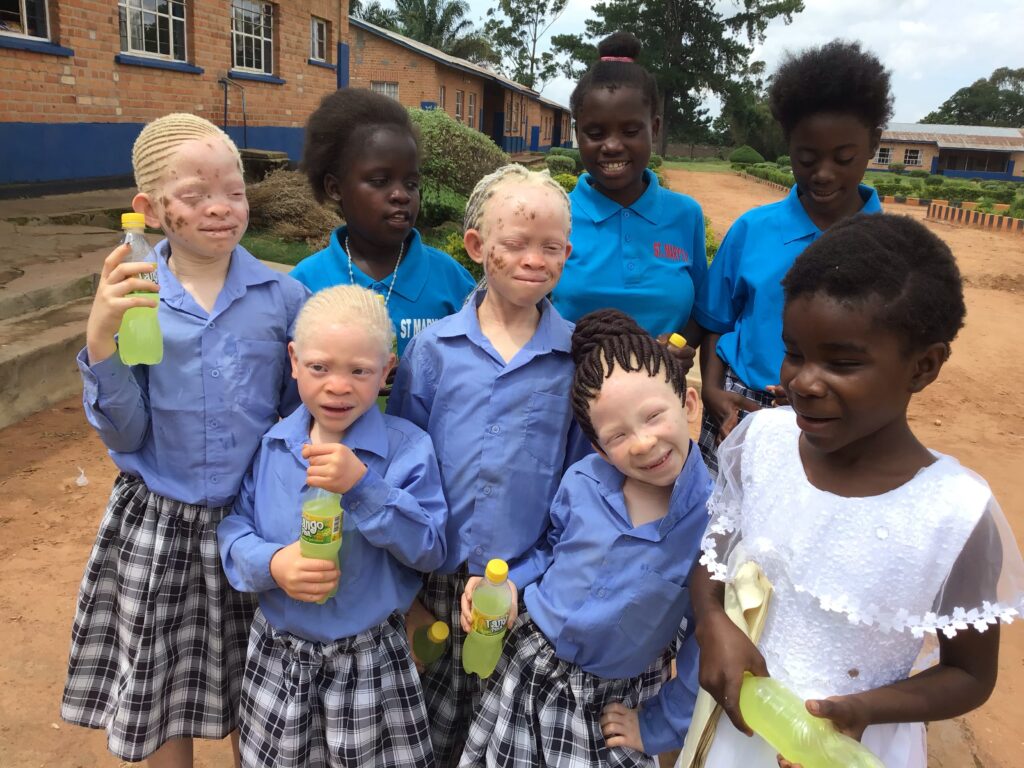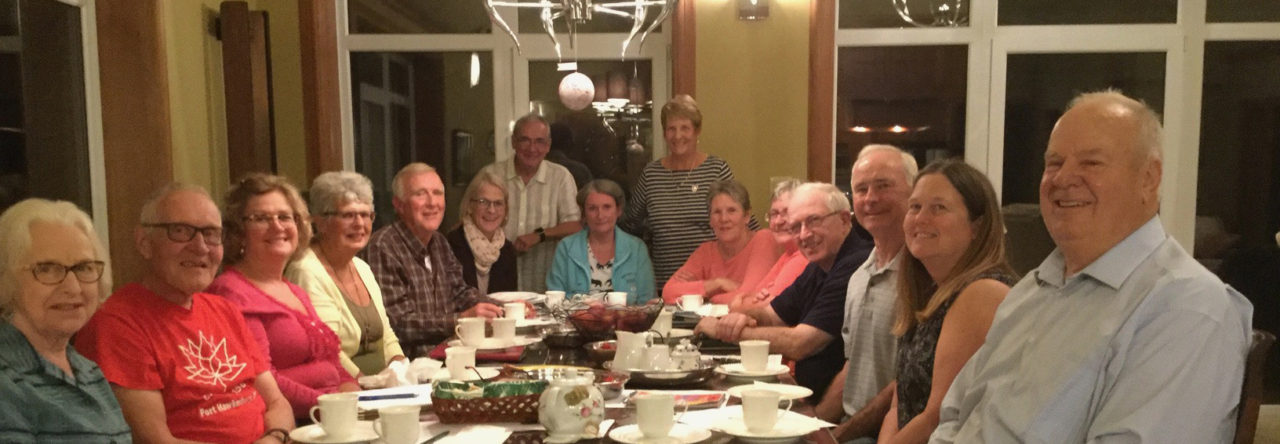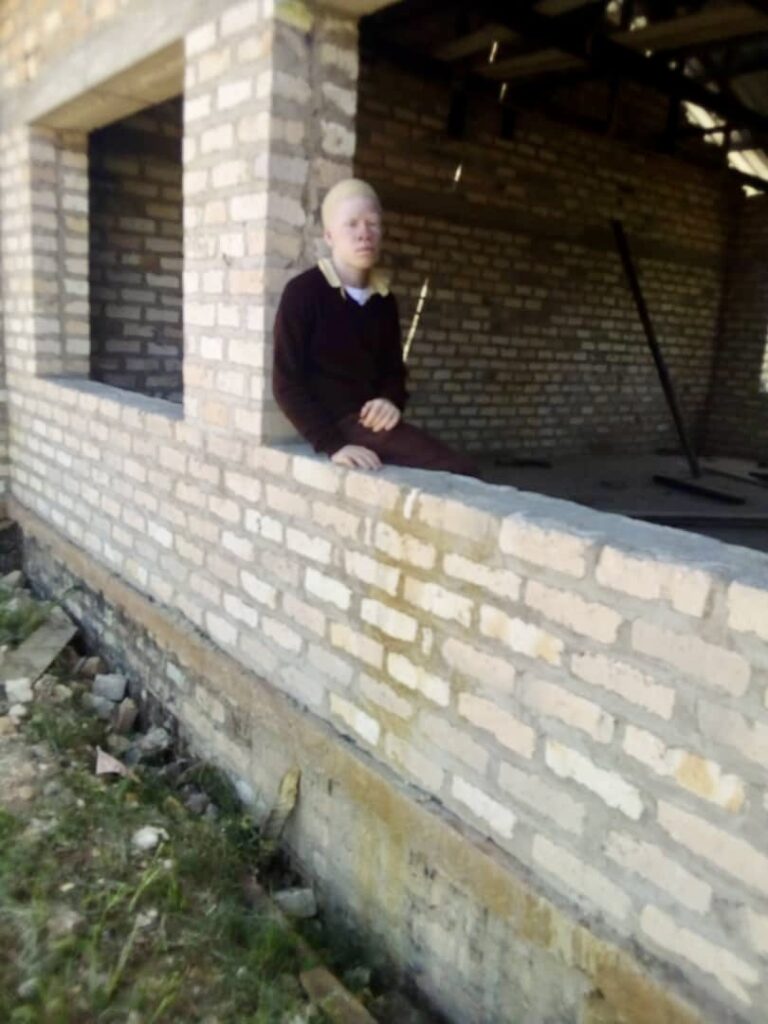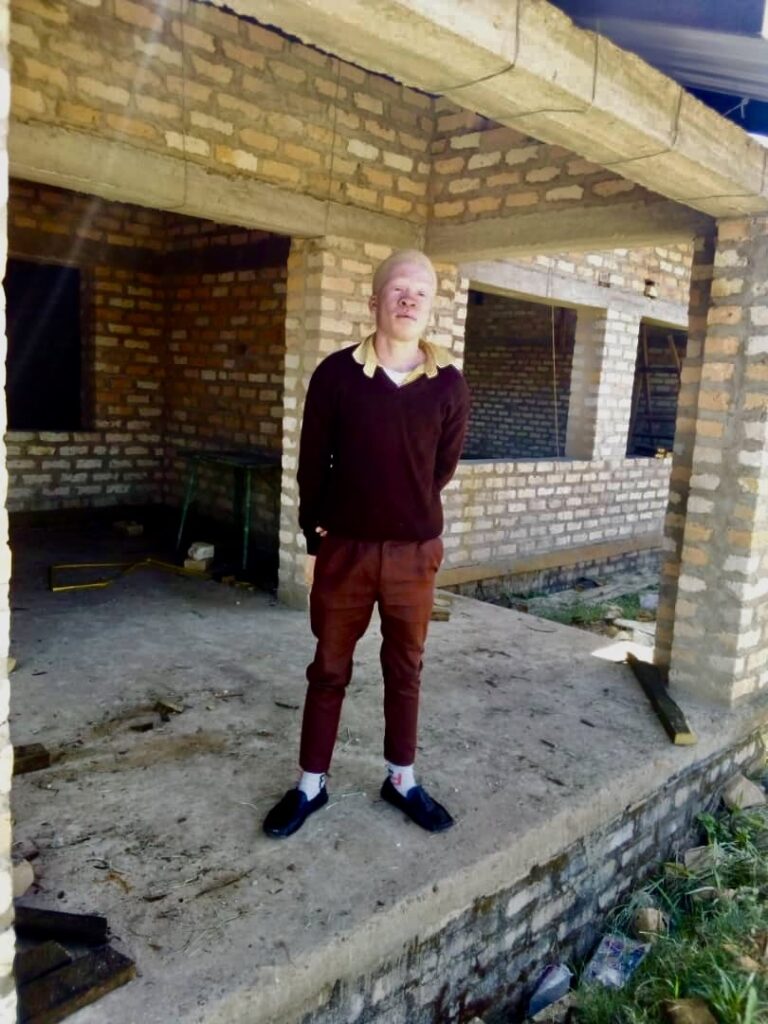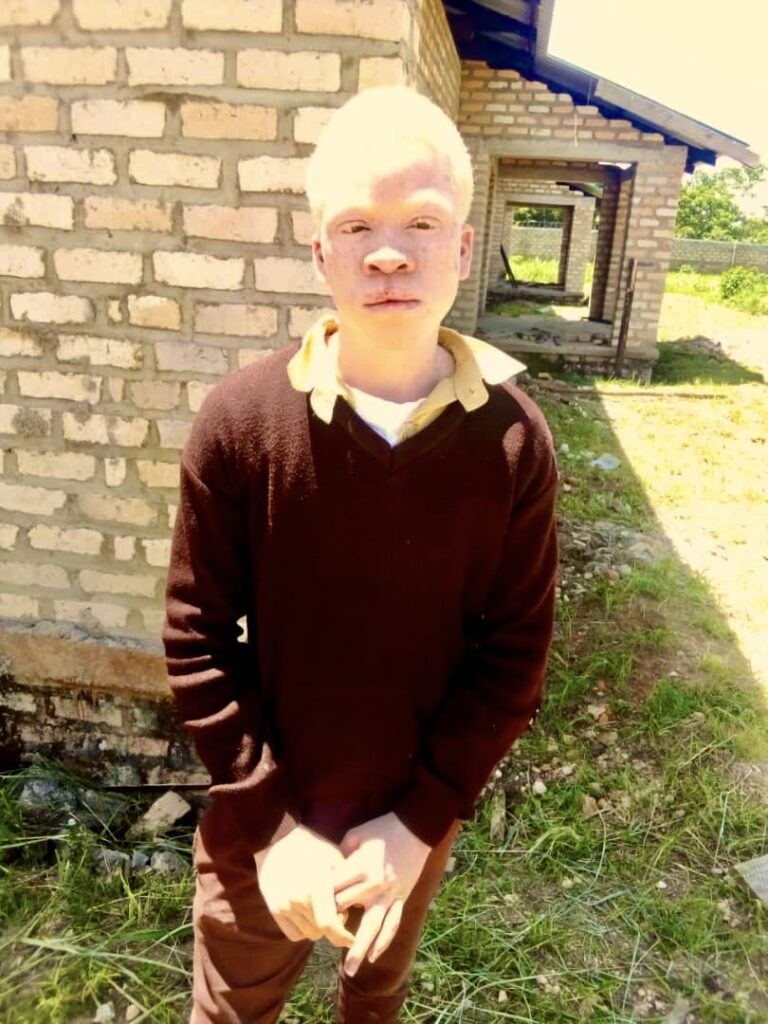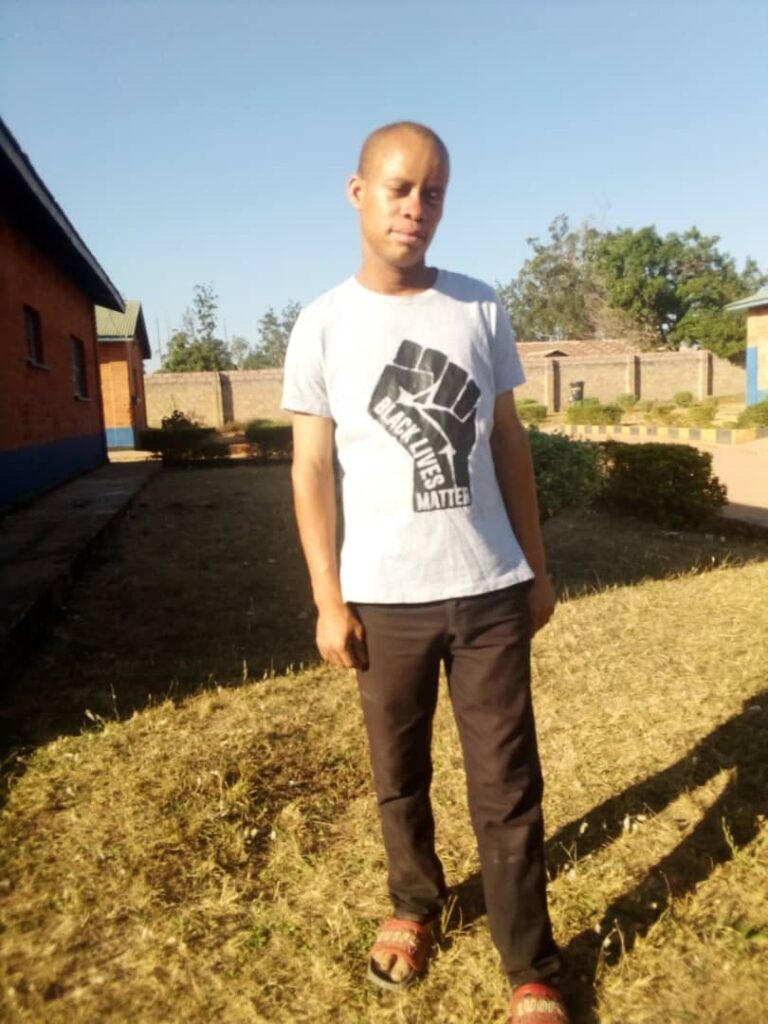Inverness County Cares (ICC) is an Inverness County Charity established in 2012 to help some of the world’s most needy. We partner with Chalice.ca who provide assistance with accounting, transfer of funds, auditing and general support. Our initial commitment was with a school in Nairobi, Kenya. When this Kenyan project was completed in 2019, ICC under the guidance of Chalice, chose a family of two schools in the north of Zambia. The St Mary’s School in Kawambwa and the St Odilia School in Mporokoso provide an education and a refuge for some of the most vulnerable children. Many of the students attending these schools are blind or have visual impairments brought on by Albinism, a genetic condition. Individuals with albinism (albino) have an absence of melanin in their skin and their vision deteriorates as they mature. Melanin protects our bodies from the damaging effects of ultra violet rays of the sun and without it, albino persons are in great danger of skin cancer. Many of the pictures of our young students already show the beginning of cancerous lesions on their skin. Sunscreen for the almost 500 students at both schools is a tremendous cost as well as protective clothing, hats and sun glasses.
In addition to this great burden of little or diminished sight the students are in a very dangerous situation. Zambia and surrounding countries especially, Burundi, the Democratic Republic of the Congo, Tanzania, Malawi and Mozambique, still believe that the bodies and body parts of albino people possess great magical powers when included in black magic potions. They are never safe and must always be accompanied by trusted companions when out in the community for there is a very real possibility they may be kidnapped or attacked and have fingers, arms or other body parts hacked off. There is a documented event at the St Odilia where a child was abducted at night from the dormitory, but rescued due to the quick action of a community member. In addition to all this, when a child is born with albinism it causes great anxiety in the family. The genetic causes are not totally understood and mothers of this seemingly white child are often accused of being unfaithful to their husbands and families break up. In other cases, because of superstitions and the fear that albinism is infectious these children are hidden, neglected or in extreme cases murdered.
Since ICC’s involvement with the Kawambwa family of schools we have provided additional assistance to the programs provided by Chalice. Each year ICC pledges $30,000 to the schools and any additional funds raised above that amount are used to contribute to additional projects. In the past few years ICC was able to provide an additional $30,000 to contribute to additional projects identified by the school’s administration and staff.
Contributions:
-The schools were very vulnerable to theft and abduction of the students because of the of absence or inadequate exterior wall fences. At night the students were in terror of intruders and during the day theft of their meagre possessions… even the mattresses were stolen from some of their beds. In cooperation with Chalice, both schools now sleep in peace because they are now surrounded by a secure wall fence.
-The students live in remote locations and transporting them safely to and from school during school breaks has been made much safer and more efficient by the purchase of a Mitsubishi Rosa bus with 28 seat capacity. ICC and Chalice partnered to cover the cost.
-Climate change is evident in Zambia as well. On two occasions in the fall of 2022, the dining hall and the grade 8 & 9 classroom building had their roofs blown off, causing wind and water damage to school supplies and the school structures as well. In both instances no one was hurt despite the children were present for both events. After a detailed plan for repair with several cost estimates, ICC and Chalice partnered to replace the classroom roofs with a much stronger and durable structure, that will withstand the more severe weather experienced in the area. The very leaky roof of the convent of the Sisters of the Child Jesus, who administer the school, was also replaced.
-The school has been provided with Brailon paper which is needed to construct Braille books and for the students to take notes in Braille. ICC has also provided beds, bedding, a large screen TV, tiled floors in washrooms and dorms as well as painting and renovating the dining room.
In January 2024, six members of Inverness County Cares will travel to Zambia to meet and become familiar with the staff and students at the two schools. Betty Jane Cameron, John MacInnis, John Gillies, Winnie Rankin, Charlotte Rankin and Colleen MacLeod, will spend two weeks at each school, volunteering services. We will work on many tasks assigned by Sister Agnes Bwalya the school site manager and administrator. Gardening, painting, repairing, teaching music, teaching and more will keep us busy. Each volunteer will cover all their travel, food and accommodation costs personally.
Chalice has a sponsor site in these communities and many of the children attending our school (but not all) have sponsors through Chalice’s sponsor program. If you are interested in sponsoring a child at one of our Zambian schools contact at ICC member at [email protected] or call 902 227 5425.
All the good things happening at the schools have occurred because of the generous support of our sponsors. Thank you to those have contributed directly, or who have supported out fundraisers especially our very successful collection of refundable containers and bottles. Thank you to our members who manage the refundable container collection in Mabou and in Port Hood, Ted Van Zutphen, Stanley Beaton, Raymond DeBont, Michael MacDonald and to Wayne and Karen Beaton and Ted and Hermina Van Zutphen who provide collection sites.
Inverness County Cares (ICC) is a local charitable organization, founded in 2012 and based in Inverness County, NS, Canada. ICC works in partnership with Chalice.ca, a Canadian charity, based in Bedford, Nova Scotia. Chalice provides guidance and assistance to help ICC provide a better life for the children at the Kawambwa schools. The Kawambwa Project involves supporting two schools for albino and visually impaired students, in Northern Zambia. Inverness County Cares always welcomes new members. Individuals who wish to donate, can use the donate button on our website https://invernesscountycares.com When using E-transfer, please include your mailing address for CRA tax receipts and a thank you message. E-transfer address: [email protected] or send a cheque to Inverness County Cares, 5414 Route 19, Judique, NS, Canada, B0E1P0. Taxation receipts provided for USA and Canada.
